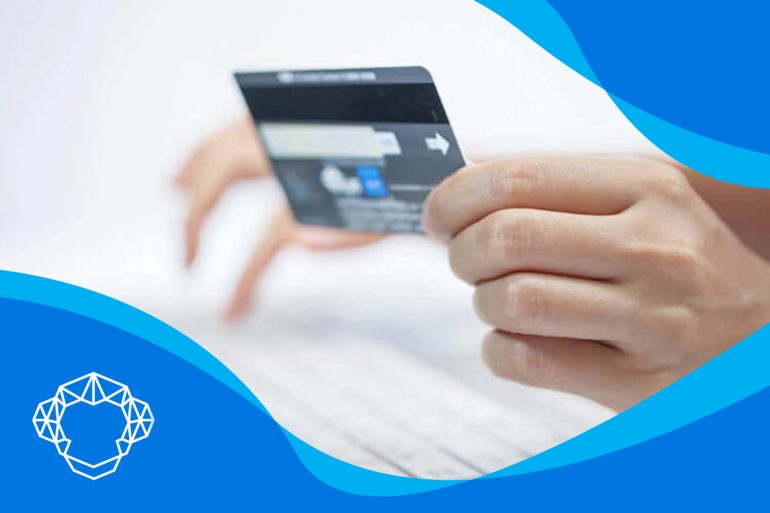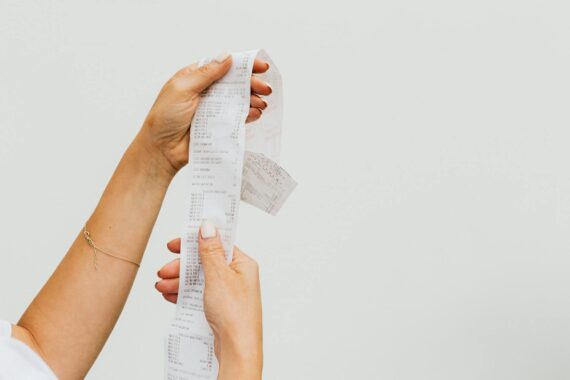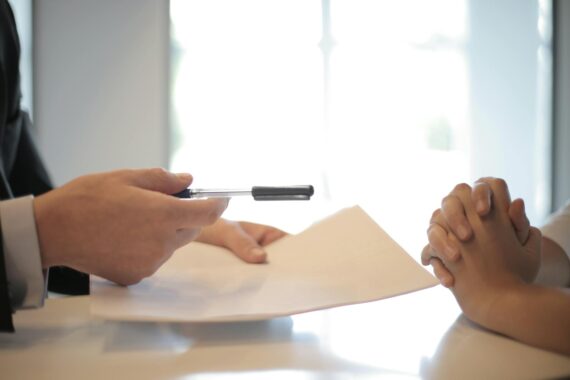Sometimes mistakes can happen, you can charge products that never got to customers, or they’ll want to return. Also, the credit card company can charge twice for the same item. The customers will want their money back. Knowing everything about disputing a credit card charge should be a must for a business owner. Luckily for everybody involved, most of these errors can be corrected in a few easy steps – learn all about them in the following article.
It Is a Common Situation Many Card Holders Have to Deal With
Unfortunately, many credit card (CC) owners face this problem daily and with them businessmen as well. Customers can be charged for the service they never got, charged for the same thing twice, or something similar.
Entrepreneurs should understand that this must feel frustrating or very annoying, especially if the same situation repeats, but there are some methods that can correct these problems in no time. Knowing about them will allow you to help your client and with that build up the trust they have in your business. It is also important that you have knowledge of dispute settlement procedures – they are provided by the Fair Credit Billing Act (FCBA).
FCBA Applies to Open-End Credit Accounts
This law, in practice, is applied to “open-end” accounts like credit cards and revolving charge accounts – for example, department store ones. This doesn’t cover installment contracts – for example, extensions of credit relying on a fixed schedule or other loans.
Can I Dispute a Credit Card Charge That I Willingly Paid For? Consumers Have the Right to Do This
If you wonder if consumers have the right to dispute charges, the answer is yes. No matter if we’re talking about a system error or the fact that merchants didn’t offer satisfactory goods or services – the answer is the same. Although they are supposed to challenge fraudulent payments immediately, they can file a dispute within 60 days of the transaction. The time frame is highly dependent on the type of dispute consumers are submitting.

What Does Disputing a Credit Card Charge Mean and Why Is It Important?
If you’re not familiar with this term or wonder how to dispute a charge on a credit card, here’s the deal. Plastic transactions provide important insurance to consumers, and one of the major possibilities is to file a dispute if needed. This means that consumers can disagree with some of the payments made. Once they file a complaint, they expect that the creditor will help them remove that charge, and they don’t owe money.
As a business owner, it is important for you to know that the cardholders are allowed to dispute any payments they didn’t make. This is crucial if they had their card stolen or someone used their information for online payments without their permission or knowledge. Basically, consumers aren’t supposed to be responsible for these kinds of purchases.
The other option is that the cardholders dispute purchases they made, for example. This part is the most important one for the entrepreneurs – if they provide unsatisfactory goods or fail to provide promised merchant services – this is when the previously mentioned Fair Credit Billing Act comes in to protect consumers’ rights. Obviously, there are some rules that have to be followed, and all the steps will be described in the following article.

The Main Steps of the Disputing Process Depend on the Issuer
You, as an entrepreneur, can only direct the customer to the CC issuer, and then they’ll start the whole disputing process. This process depends on various factors, but the most important one is the issuer’s policy. Depending on this factor, there are two main ways for a customer to proceed.
The first one is calling the issuer’s phone number and explaining the problem. The company’s customer service representative will answer all questions and ask all the necessary information needed to file a dispute. The second option is looking up and dealing with charges online – this will also require adding some information, such as the reason for starting this process and so on.
Company Can Require Additional Supporting Documentation
The issuer is allowed to require some supporting documentation in order to proceed with the whole process in the best possible manner and provide promised insurance. This should be filed right away, or the client can contact the company directly and wait for their response before adding any supporting documentation as a form of evidence. It is much easier for both parties if consumers include the evidence in the process right away.
Consumers are obligated to contact the merchant with the issue because the law for consumer rights implies that the company must make an effort to resolve the problem before filing a dispute. Your company should remove the payment from the statement during the process so consumers won’t be obligated to pay for anything. At least until the process is over and a decision is made. If the consumer wins in this process, they won’t need to pay for anything after the process is over.

How Long Do Customers Have to Dispute a Charge?
Can you dispute a credit card charge after 90 days, consumers may wonder – in most cases, they will have 60 days from the date of charge to notify the company. FCBA establishes this limit, and it is the same no matter if the consumer is dealing with a fraudulent payment or any other kind of acquisition that didn’t come out as planned. Although this limit is the same for most credit card processing companies, it is allowed that you make some changes.
This limit should be noted in the cardmember agreement and included in the email that the company sends to clients after opening a CC. And it should also be visible information on the company’s official website in the billing rights section. If the client fails to start the process within this time limit, in most cases, they will be stuck with paying the bill. This is why processing companies recommend to clients to carefully check their CC statements every month – the more time passes, the more complicated the whole process will turn out.

What Are the Main Reasons for Disputing Charges on Cardholders Accounts
There are many reasons consumers will go for this step, but in most cases, they will all fall into the same three categories:
- When charging is unauthorized,
- Billing error happened,
- There was some kind of problem with the purchase.
Keep reading if you want to find out more information about each of these categories.
Unauthorized Charges
This could be one of the main reasons. It usually happens if someone uses their CC for some kind of payment clients didn’t acknowledge and authorize at that moment. This can also be characterized as a fraud. It falls under FCBA, and the maximum amount that a cardholder can be liable for if the unauthorized purchases are made is $50. In these scenarios, amounts usually go way over this.
The law states that cardholders aren’t liable to pay for anything in unauthorized CC use. However, it is highly recommended that cardholders protect themselves by notifying the company about this issue immediately after the first payment is made. This way they’ll avoid any further problems, especially if cards are lost or stolen. In case that any unauthorized payment is made before the consumer manages to notify the company, they are allowed to dispute charges. These kinds of unauthorized payments can also happen if the CC is still in the owners’ possession, but the criminal gets hold of the CC information and uses it for making unauthorized payments.
Billing Errors on Consumers Cards
As we said before, mistakes can happen. Luckily there is a way to fix them, especially if you charge your customers with something they didn’t buy from you. This, the second common scenario, is related to charges that merchants are making by mistake. For example, one of the common situations is that multiple charges are made for the same purchase. The other option is charging for a subscription service after it’s being canceled because some of the information isn’t updated. If consumers don’t get a refund for the billing error, they are allowed to dispute it.
Problems With a Purchase With Consumer Cards
In case that consumer has some kind of issue with a product or any service that they purchased, this process will help them get their money back. FCBA requires that they make a good fair effort with a merchant first before they proceed with the next step. That being said, you might even help the customers solve the problem before they dispute a charge. However, if that doesn’t happen, know that the main reasons for this kind of dispute are:
- Product isn’t delivered,
- Service that they paid to the merchant wasn’t completed,
- There was some kind of quality issue involved in the purchase.
Disputing Charge Doesn’t Have an Impact on Credit
If clients get annoyed with the fact that they have to engage in this disputing process, assure them that it does not have an impact on credit overall. The only obligation for cardholders is to keep paying bills normally during the whole process. Disputed charges will be removed from the bill until the process is resolved, but the rest of the bill is the user’s responsibility.

Dispute Can Also Be Denied
What happens to the merchant when you dispute a credit card charge, and will I get my money back if I dispute a charge, consumers usually wonder. In some cases, a dispute can be denied, and in that case, the payment will be charged back on cardholders’ CC. This means they won’t get their money back, and they’ll have to pay for everything at the end of the process.
Keep in mind that you as a business owner are legally obligated to explain why it was denied and how they can appeal the decision. This explanation with full disclosure of the facts should be sent in writing. The appeal gives the customer an opportunity to provide additional evidence and win at the end. However, in case that doesn’t work either, the last step is filing a complaint with the Consumer Financial Protection Bureau and hiring a lawyer. Although in most cases, this will only cause additional fees without positive outcomes for the cardholder.

There Are Merchants Rights You Should Know About
There aren’t many protections and laws when it comes to merchants’ rights and their fight against chargebacks. Even with the “no refund” policy, FCBA allows cardholders to file chargebacks. This is why it is advised to business owners that they clearly display all the policies that will help the customers understand their rights and sales rules.
This can be relevant during the arbitration process, and it can generally help merchants in fighting against chargebacks. The bank will usually tend to favor the cardholder against the business owners in the majority of disputes. This is why it is important that merchants do everything in their power to document all the transactions and purchases and be very strict with the rules set by the cards’ networks. After all, you should put clients’ needs first but also the safety of your own business.






